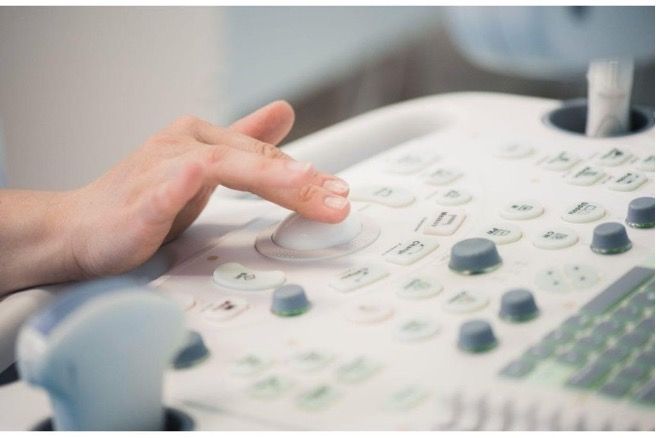Causes of Hemorrhoids
Signs & Symptoms of Hemorrhoids
6/13/2024
Beyond the Basics: 5 Hemorrhoid Complications to Watch Out For
What are the possible hemorrhoid complications?
- Thrombosis
- Strangulation and Gangrene
- Anemia
- Prolapse
- Infection
Generally, hemorrhoids are not life-threatening. This disease occurs commonly among adults, and they can easily be treated at home. As with any medical condition, hemorrhoids, mostly if left untreated, can have several complications. Hemorrhoid complications are largely avoidable if it’s treated right away, so make sure to get treatment for your hemorrhoids as soon as possible.
It’s important to establish that complications are rare. But to keep you ready for the worst, it helps to know about the different possible complications from hemorrhoids. We’ve compiled a list of some of them. Keep reading to learn more.
Thrombosis of Hemorrhoids
Thrombosis is perhaps the most common complication for hemorrhoids. Sometimes, when blood pools there, blood clots (or a thrombus) form in external hemorrhoids. This blood clot can cause severe pain and itching to the patient, but it isn’t particularly dangerous. It will also cause more inflammation and you’ll feel a hard lump near your anus. You should watch out for any bleeding during bowel movements when you have this complication.
Having thrombosed hemorrhoids creates a lot of discomfort for the patient. Rapid relief of symptoms can be achieved with an acute surgical incision or excision to drain the clot. The procedure, also known as external thrombectomy, is most effective if it is done within three days after hemorrhoid appears.7

Strangulation and Gangrene of Hemorrhoids
There are some cases when strangulation happens in hemorrhoids. The arteries that supply blood to the hemorrhoid get blocked, causing intense pain.3 Without a supply of fresh blood and oxygen, the tissue in the hemorrhoid will start to die. This is also called gangrene. Tissue death is a serious complication and can potentially be fatal. Although its occurrence in hemorrhoids is extremely rare, it’s still possible. This usually happens if a strangulated hemorrhoid is left untreated.1
Anemia due to Hemorrhoids
Every once in a while, hemorrhoids can bleed. Painless bleeding can still be considered as one of the normal symptoms of hemorrhoids, though it definitely shouldn’t be ignored. Bleeding will likely continue if no treatment is applied. If excessive bleeding happens, you could develop some fatigue, shortness of breath, headaches, and dizziness because of the blood loss.

Prolapse of Hemorrhoids
Internal hemorrhoids are generally painless. However, they can prolapse and fall outside of the anus which then becomes uncomfortable and painful, especially when sitting down or during bowel movements. This type of hemorrhoid can sometimes retreat back inside on its own, but it’s better to try and push it back in.8
If a prolapsed hemorrhoid is left untreated, it may get trapped outside and worsen. It can be significantly painful, swollen, and may even get thrombosed.
With many complications, an incarcerated prolapsed hemorrhoid may call for an emergency hemorrhoidectomy, a type of surgery.2
Infection due to Hemorrhoids
A bleeding hemorrhoid is susceptible to infection. Bacteria can enter a bleeding hemorrhoid, and if it doesn’t get enough blood flow, no white blood cells will be there to fight the infection. Infected hemorrhoids can present the same symptoms as a regular hemorrhoid, such as bloody bowel movements, swelling, itching, and pain around the anus. But infection may also include a fever, redness around the anus, and abscesses.
Infections can lead to even more serious complications such as tissue death and peritonitis. If your hemorrhoid is infected, you should visit your doctor right away.9
When Should I See A Doctor For Hemorrhoids?
As mentioned here, hemorrhoids are not very dangerous and can easily be treated. Internal hemorrhoids are usually painless and can go away on their own. Prolapsed and thrombosed hemorrhoids are those that can be especially painful and more vulnerable to complications. You should see a doctor when:
The pain affects your daily life.4 Hemorrhoid pain can mean that there is some issue that you may not be aware of. If it affects your daily life and bowel movements, you should consult a doctor to see what interventions they can apply.
There is excessive bleeding or prolapse.4 If you’re experiencing bleeding that doesn’t stop, then emergency treatment is needed. Rectal bleeding may not necessarily be hemorrhoids, but it is still a cause for concern. If you notice a prolapsed hemorrhoid and you can’t push it back, then a doctor may help.
The hemorrhoids don’t go away.3 With consistent home treatment, hemorrhoids should go away within a week. If the condition persists, then it’s time to go to a doctor for consultation.
You develop a fever, lightheadedness, or dizziness.9 A fever is a symptom of infection. To avoid it worsening into a life-threatening ailment, go to a doctor as soon as possible. Feeling lightheaded, dizzy, or faint, may also be warning signs for more sinister diseases.
Key Takeaway
With hemorrhoids, time is of the essence. The prompt application of treatments, be it home treatments or over-the-counter medication, is the key to avoiding hemorrhoid complications.
For fast healing and effective treatment, you’re going to need the best for hemorrhoids in the Philippines: Diosmin + Hesperidin (Daflon 1000)! It uses MPFF to strengthen your veins and to treat hemorrhoids. With Diosmin + Hesperidin (Daflon 1000), your road to recovery from hemorrhoids will be quicker than ever!
REFERENCES
- https://healthmatch.io/hemmorhoids/thrombosed-hemorrhoid#how-long-do-thrombosed-hemorrhoids-last
- https://pubmed.ncbi.nlm.nih.gov/24881480/
- https://www.healthline.com/health/types-of-hemorrhoids#complications
- https://www.johnrivasmd.com/blog/when-do-hemorrhoids-require-medical-intervention
- https://www.borraginol.com/en/type/kanton/
- https://medlineplus.gov/ency/imagepages/18120.htm
- https://www.healthline.com/health/thrombosed-hemorrhoid
- https://www.healthline.com/health/prolapsed-hemorrhoid#symptoms
- https://www.healthline.com/health/infected-hemorrhoid
2026